Updated:
Varieties and Specifics of UFC Betting
Like in other sports, the odds for UFC fights directly depend on the credentials of the opponents. Despite UFC being an elite competition in MMA, there are also preliminary fights with standard betting markets such as winner, early finish, etc. However, for the high-profile fights, the odds can be significantly broader and may include the following types of bets.
Outcome on the Winner
The outcome on the winner is the simplest and most common type of bet in UFC fights. However, it has some differences from similar bets on other sports competitions. The specificity lies in the fact that UFC fights rarely end in a draw. For example, in title fights starting from 2008 up to the present (March 2024), only five draws have been registered. Therefore, many bookmakers do not include such an outcome in their line at all. In other words, the bettor is offered an ordinary bet on the winner with only two options: W1 or W2. If the fight ends in a draw, the player simply gets their stake back. However, some bookmakers do include such an outcome for fights between equal fighters. Therefore, in the event of a draw, the bet on the winner will be lost.
IMPORTANT! Before placing your bets, make sure that there is no option for a draw in the odds, otherwise reconsider your chances of winning.
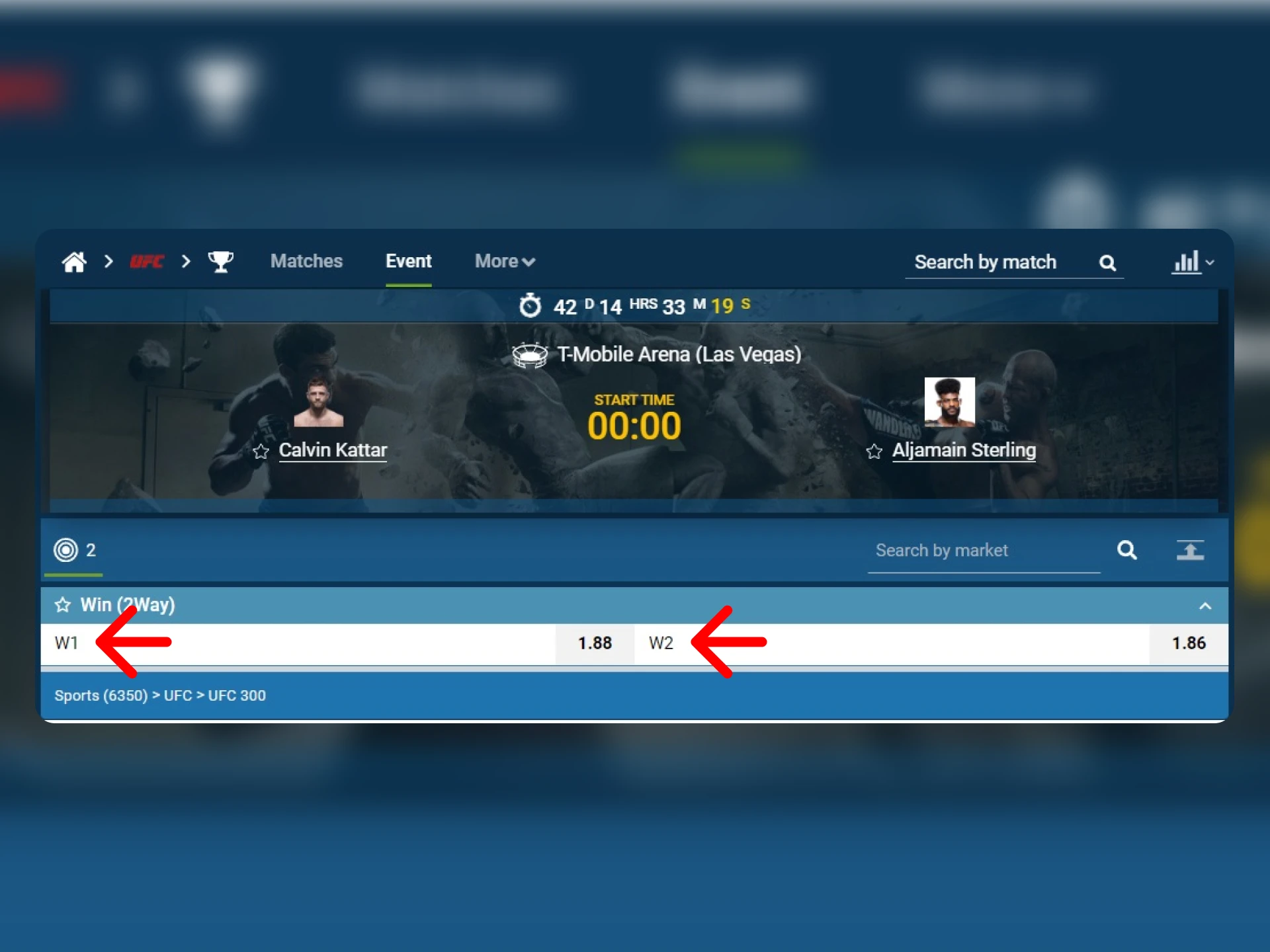
Total Rounds
If fights are between two fighters, with one having overwhelming superiority, bets on them will have minimal odds, making betting on them economically unfeasible.
IMPORTANT! Typically, in such fights, there is a bet with the outcome of a draw alongside the standard action line of choosing between two winners.
In this case, bookmakers supplement the action line with bets on winning in the first round. Even if a fighter refuses to continue the fight due to an injury in the early seconds of the second round, the bet is considered lost because the bell signaling the start of the second round has rung. A win in the first round is counted under any circumstances that prevent the fighter from continuing the match: injury, submission, doctor’s, judge’s, or referee’s decision.
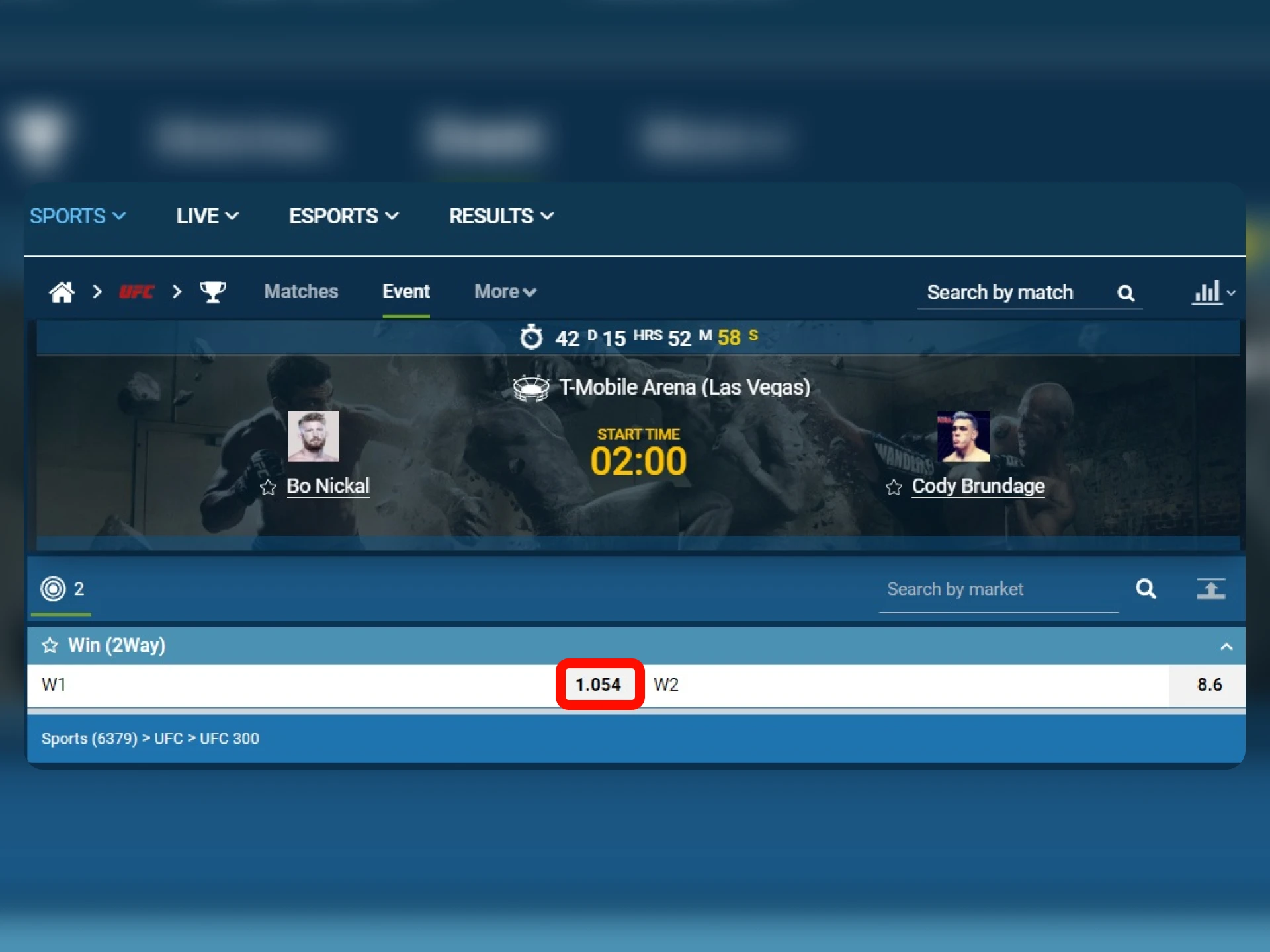
In addition, there are several nuances. If after the bell for the start of the second round, the referee decides to discontinue the fight, then such a bout will be considered concluded in the second round, even if no strikes were thrown throughout the entire second round.
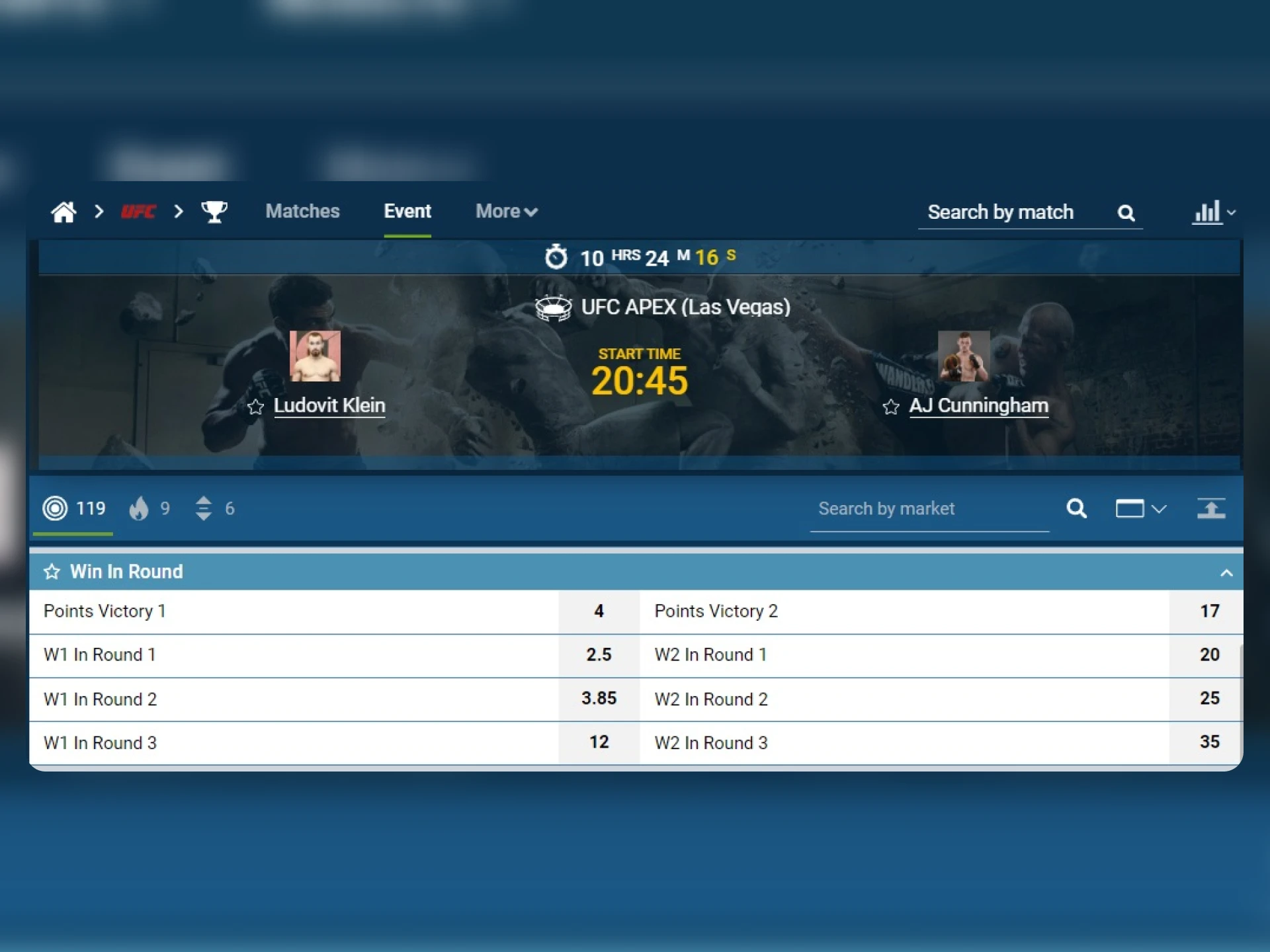
Method of Victory
The UFC rules provide for several ways a fight can end. Bookmakers typically combine them for betting into the following pools:
Submission/Chokehold or Opponent’s Voluntary Surrender — In a chokehold, the opponent may not surrender (lose consciousness), but such an outcome is also counted in this pool;
- Knockout, Technical Knockout as declared by the referee, Disqualification — In this pool, the condition under the victory method of disqualification refers to the disqualification of the opponent;
- Victory by Split Decision of the judges;
- Victory by Unanimous Decision of the judges.
For top matches, the action line can be even broader, including the following additional betting options:
- Victory by Decision — regardless of which fighter wins, typically, this bet is present if one fighter’s class is significantly higher than that of the opponent, making it unlikely for the fight to go to a decision;
- Full Fight — the fight will continue for all scheduled rounds as per regulations, and the bet is also independent of which fighter wins or whether the fight ends in a draw;
- Early Victory — bets are placed on each round for both fighters. This type of bet is advisable when there is a significant difference in the fighters’ class or based on fighting style — aggressive, with frequent strikes, etc.
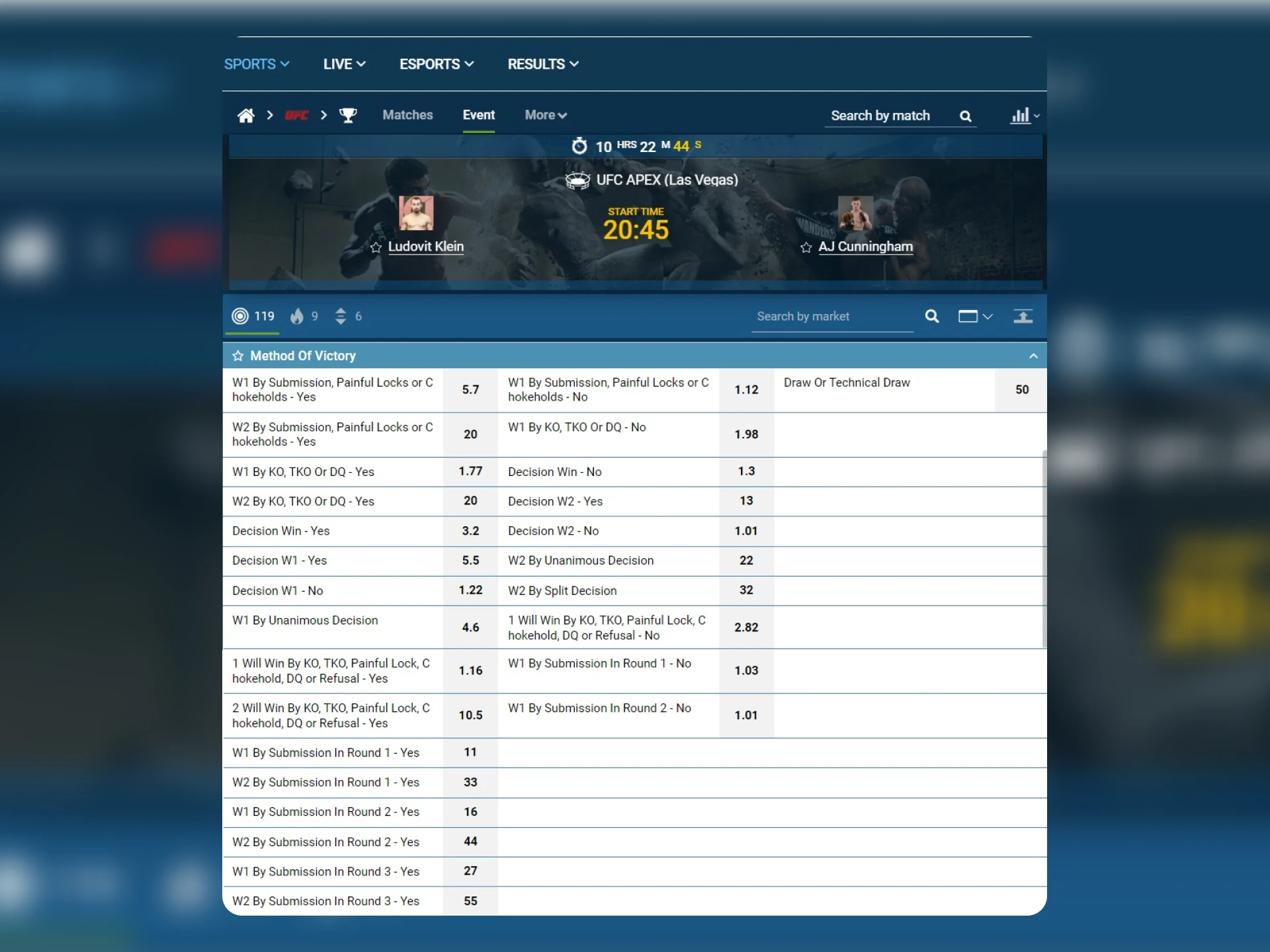
Total Over/Under
Unlike sports where the primary victory parameter is goals, in UFC, the Total Over/Under bet is tied to rounds.
For example, the standard notation of Over 2.5 could mean that the fight must end in the first or second round. The bet Under 2.5 would correspondingly mean in the third to fifth round (if the fight is a five-round one). Therefore, for three-round fights, bets of Over/Under 1.5 are used.
However, there are certain differences in how the bet is built here as well. Some bookmakers tie the bet to whole rounds, while others tie it to the total duration. For example, the bet Under 2.5 for a five-round fight (with each round being 5 minutes) could mean that the fight must end before 150 seconds into the third round. The bet would be lost if the fight continues past the 151st second.
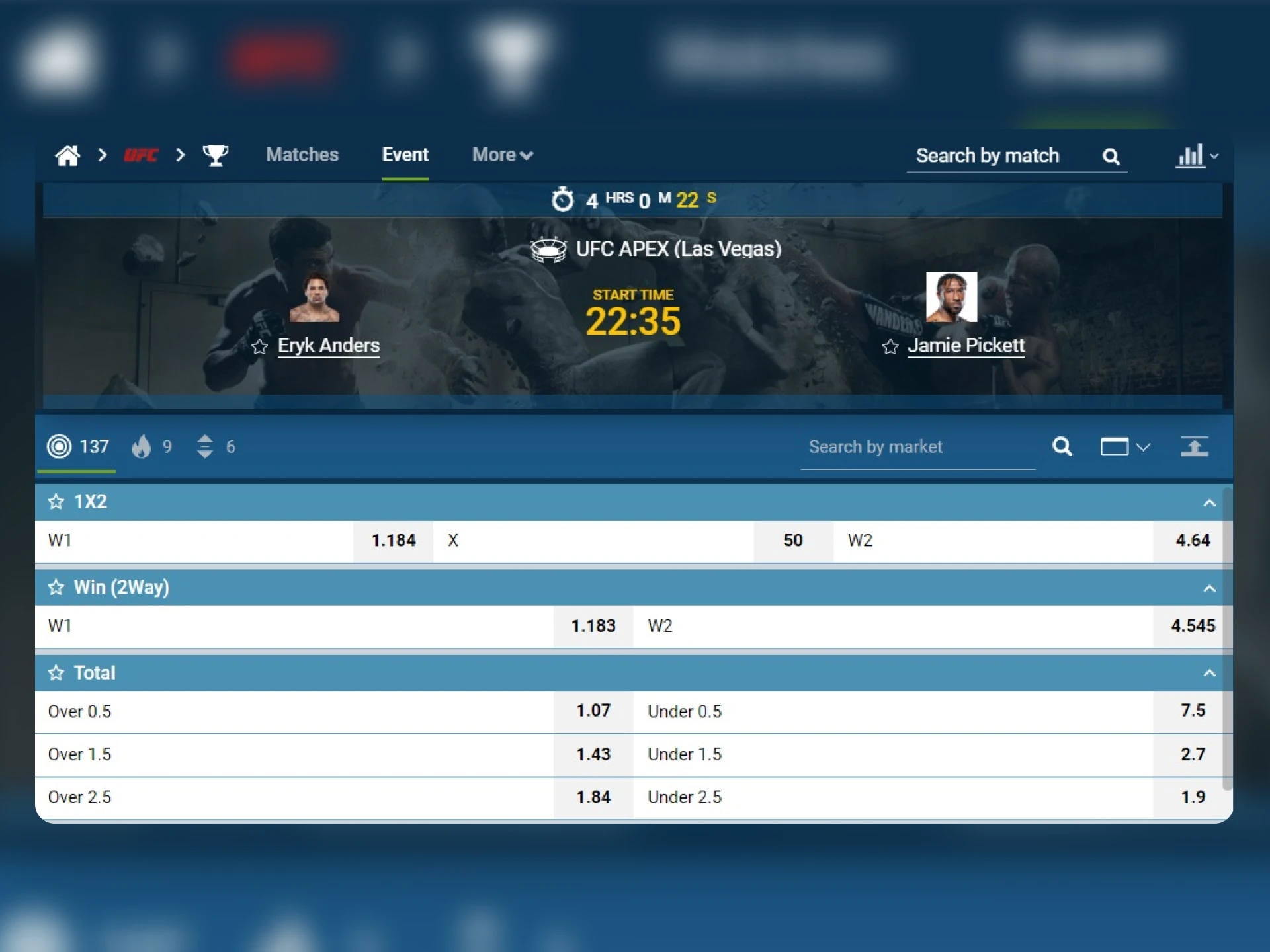
Prop Bet
A prop bet does not depend on the final outcome of the fight — the victory of a specific fighter. In the context of UFC, it is placed on various ‘standard’ methods of victory: ending the fight by striking, submission, judges’ decision, or disqualification.
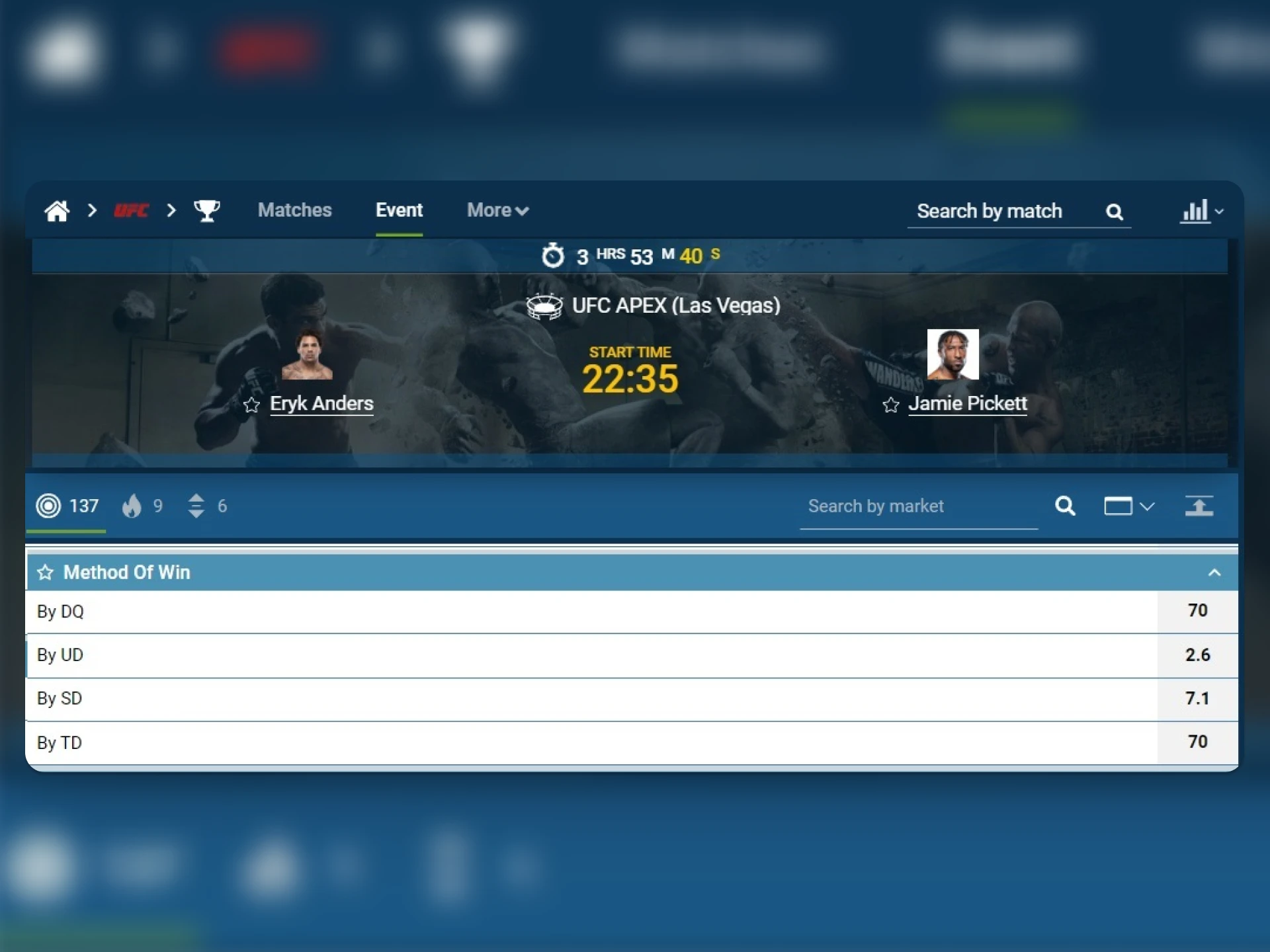
Information for Analysis
For betting on mixed martial arts, the same strategies used for other sports are applied. However, unlike team competitions, when assessing the outcome of an event, the focus of analysis shifts from static data to the current condition of the fighter.
- One of the key factors is the fighting style. Roughly, UFC fighters are divided into grapplers (fighters who prefer wrestling) and strikers. Accordingly, if the favorite of the fight prefers a striking style, it is more advisable to bet on a victory by knockout rather than by submission;
- The physical condition of the fighters, especially immediately before the fight, attracts close attention from the press and is fairly well covered on specialized internet channels. It is advisable to subscribe to such informational sources;
- Expert predictions — like in any other sport, they play a significant role. However, there is currently a large number of ‘expert’ Telegram channels requiring a paid subscription for ‘accurate information’ and ‘guaranteed winning’ bets. It is not advisable to trust such assessments. The optimal option is to subscribe to official UFC channels, where a sufficient amount of information about upcoming fights is provided, both statistical and current.
In Conclusion
Before placing bets on UFC fights, it is necessary to thoroughly study the specifics and rules of MMA both in general and their modifications applied to the specific fight: the number of rounds, duration of one round, as well as factors such as the current fighter’s ranking, head-to-head statistics, and motivation. It is worth noting that a low betting coefficient from the bookmaker is by no means an indicator of a high probability of winning. They do not always reflect the real balance of power.
To ensure a successful bet, it is necessary to conduct your own analysis based on factors such as the fighter’s training regime, personal history between opponents in a specific fight and its results, fighting style, presence of injuries sustained in previous fights, and so on. Only in this case can the bettor make a bet with a certain degree of confidence.
Learn More
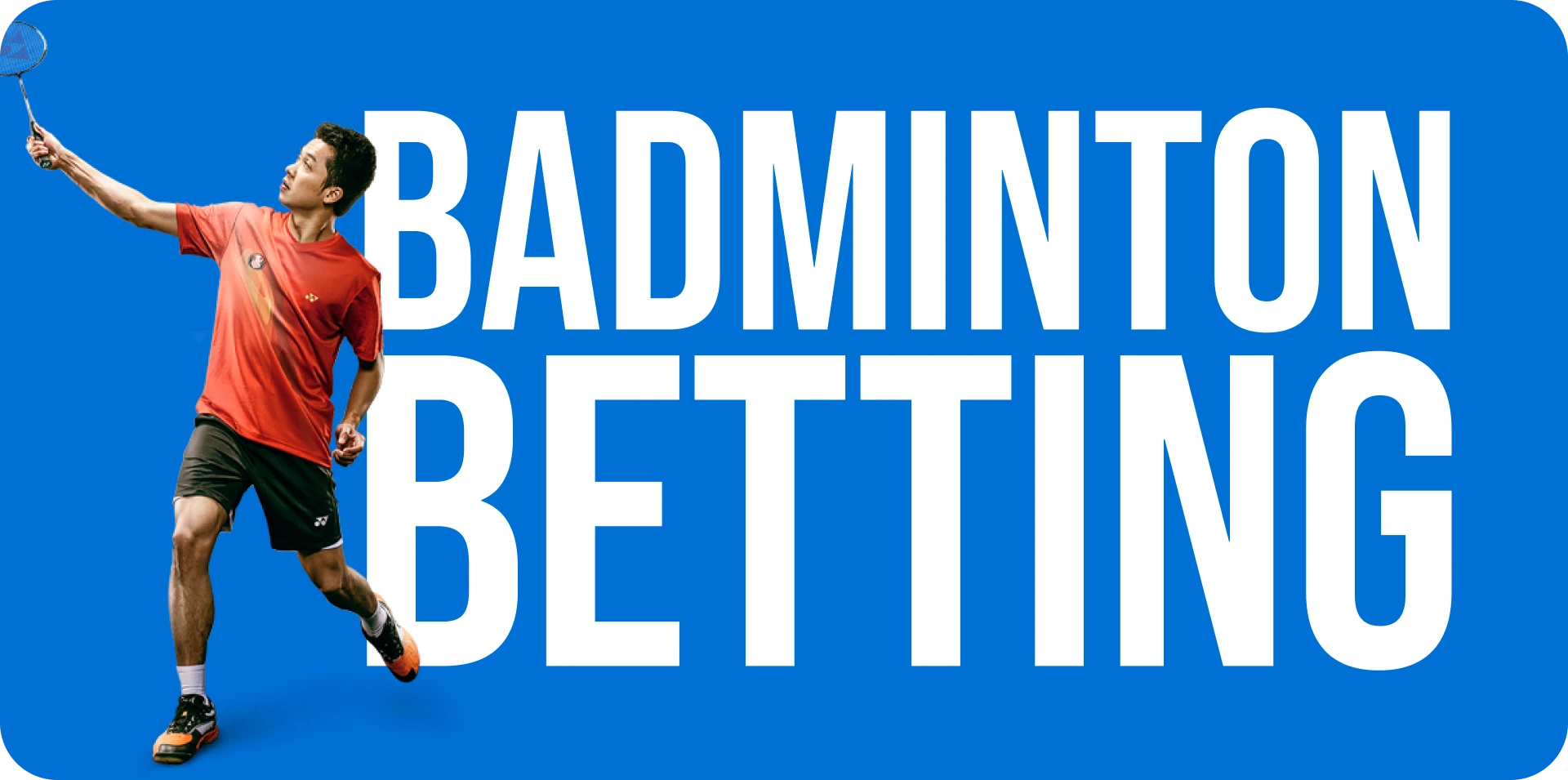



Comments